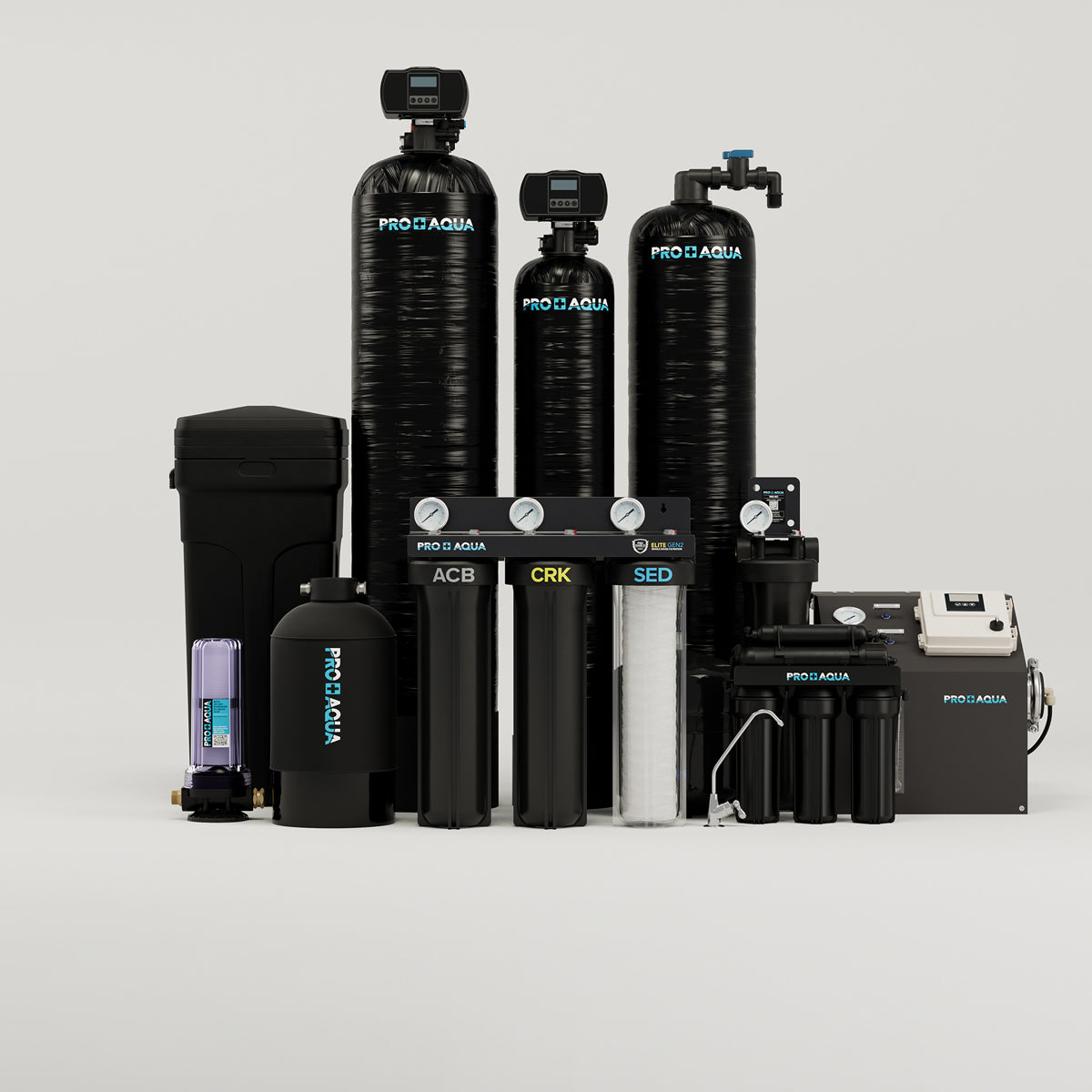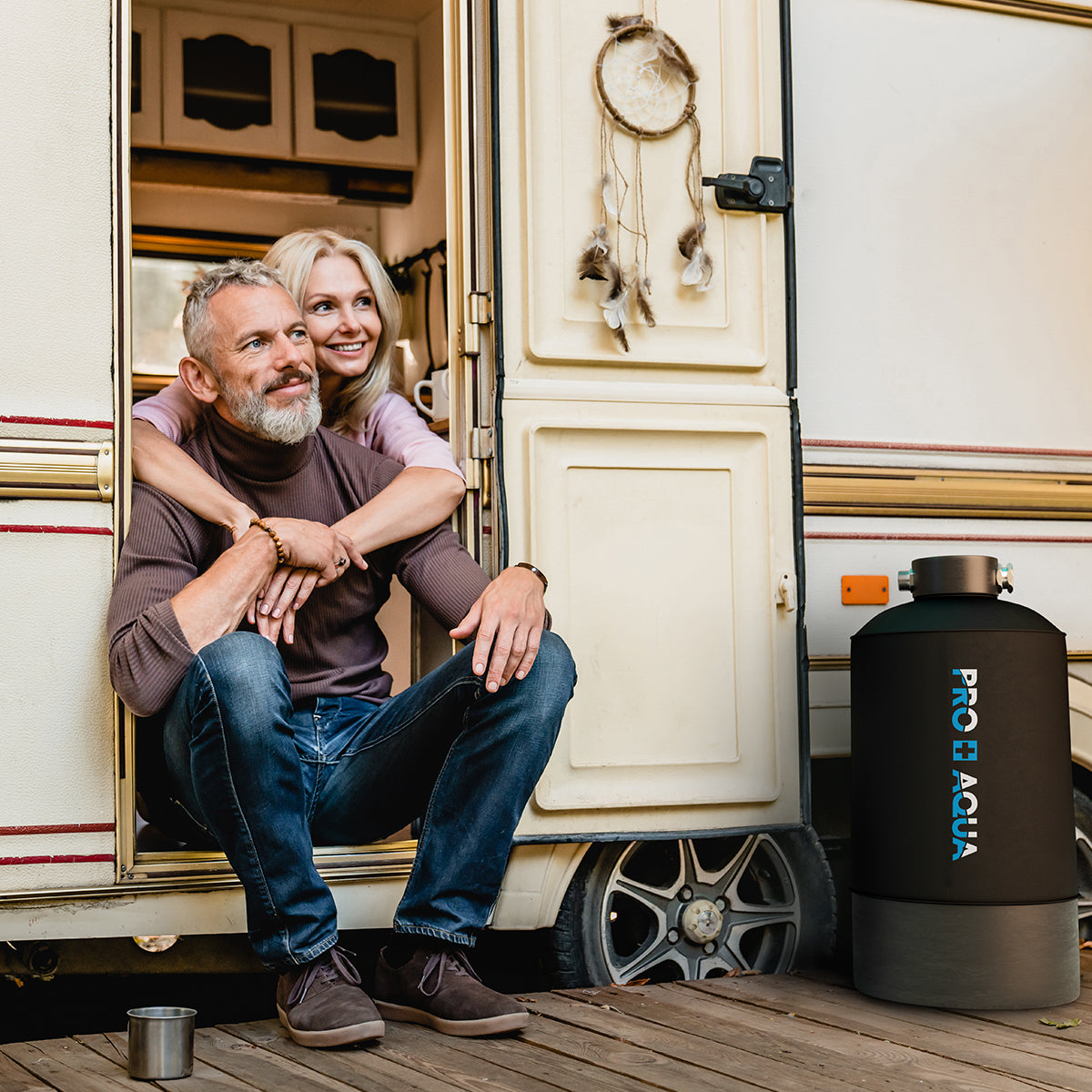There are many hair stylists who are looking to have their own place of business and wondered “how to start a my own hair salon?” They’ll invest in a great location, all the equipment, products to sell, hair dryers, washing stations and etc. But a water softener for the salon rarely comes to mind. Many salons are utilizing tap water to wash and condition hair. But they fail to realize is, tap water could be harming their business.
Water quality directly affects hair and skin health as well as the performance of products used. Over 85% of homes and businesses in the United States are using hard water. This means the tap water used in many salons have a high mineral count, more specifically calcium and magnesium. There are many problems associated with hard water, one being it can turn blonde hair into a brassy color, and other times it can give hair a green hue to it, all thanks to the copper that’s in the water.
If you’re curious to know if you’ve got hard water, you can use a Total Dissolved Solids (TDS) Meter and dip it into some tap water and the device will give you a reading. The higher the number, the harder the water. Another method is to fill up a clear bottle about halfway with tap water and add a few drops of soap, then shake vigorously. Hard water will have a...hard (get it, water joke) time creating a lather, which ends up leaving a film of soap scum on surfaces as well as on the hair and scalp. But soft water will create a thick lather and isn’t left behind. If all else fails, simply call the local water municipality and ask for the Consumer Confidence Report. This report will provide all the information you’ll need to find out if the water is hard or not.
In addition to the lack of lather and soap scum build-up, the following minerals found in hard water causes a variety of damage:
Iron: Causes excessive dry feeling and changes hair texture
Sulfates: Strips natural oils
Magnesium: Takes the shine off hair
Chlorine and Calcium: Clogs hair at the root
Lead: Prevents perms and color chemicals from processing
Copper: Discolors hair
Silica: Creates a hard insoluble deposit on surfaces. ( just look at shower heads, faucets, and tubs)
With soft water (low mineral count) you get the opposite effect of hard water. Since it’s devoid of minerals, it will help soaps and shampoos lather up quicker. In fact, you would use less shampoo to create a big, thick lather. What used to take up to two tablespoons of shampoo to do, can be done with a dime-sized dollop of shampoo. Furthermore, soft water will feel better on the skin since it doesn’t have those minerals floating around. Shower heads, faucets, and other fixtures won’t have scale build up like hard water creates.

The cost of the best water softener can seem intimidating at first, but the return on investment will greatly outweigh the initial cost in the long run. Salons will be using less product to treat hair since the soft water will be more effective, customers will love the results they are getting since their hair won’t be as weighed down, colors will be more vibrant, scalps won’t be as irritated and hair will look and feel healthier when leaving the salon.







Leave a comment
This site is protected by hCaptcha and the hCaptcha Privacy Policy and Terms of Service apply.